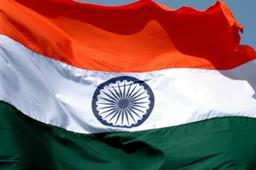 Inspired by the utility and popularity of Wikipedia, a duo in their late twenties hit upon the idea of a similar wiki site offering procedures for availing various government-to-citizen services, from getting a birth certificate to a passport.
Inspired by the utility and popularity of Wikipedia, a duo in their late twenties hit upon the idea of a similar wiki site offering procedures for availing various government-to-citizen services, from getting a birth certificate to a passport.
The result is wikifyindia.com, which went live in May this year.
One of the founders, 29-year-old Sohel Bohra, who graduated from the Hyderabad-based Indian School of Business in 2010, says he has been a contributor to wikipedia for six years, but it was one of his recent experiences that pushed him.
"The idea originated when I myself was having trouble with government procedures. I recently got married and getting the marriage certificate was so cumbersome.
"I didn't want to go to an agent or pay a bribe. That was like a final push to go ahead and do it," Bohra tells Business Standard.
Bohra and his friend Anish Chandy, who returned from an IT sector job in the US, decided to go for a wiki of government procedures.
"If you want to collect the wisdom of the crowds, organise and disseminate that information, then wikis are the best way to do it. There is no other collaborative tool as effective as wiki, and Wikipedia is the best example of that," says Chandy.
He continues: "With the government procedures there are two problems. One is that the process itself is very complex, and the information about procedures is not available."
But most government departments now have websites and also provide information on citizen services.
Bohra responds saying there are some pockets of excellence in terms of user-friendly information online, but it is very little.
"For example, the central government has a 'how do I' website and a national FAQ portal which is decent. But it's an overview, and does not have 100 per cent actionable information like location, fees, documents required etc," he says.
The Wikifyindia.com site functions under KWID Foundation, a non-profit outfit launched by Bohra.
He says, "Right now, we are funding it ourselves and we will go for donations. We wanted to provide some value to people before we ask for donations."
On why they decided to go for a non-profit venture early in their careers, Bohra says that part of the reason was the 'deep impression' that the lectures of economist AK Shiva Kumar had on him. These were part of a course called Government, Society and Business at ISB.
"We were very clear that if we want people to contribute their time and knowledge, they should be clear that it is not to benefit us but to benefit people. It's a non-profit initiative without even advertising, and it's run by volunteers," he says.
According to Chandy, the response has been tremendous in terms of users and also the chatter on twitter.
"Till recently, anybody could edit information on the site but we had a spam issue. So we made it compulsory to register if you want to edit or add content."
On their plans for the site, Chandy says the site would gradually have content in 15-20 languages as users visit and contribute in their own languages.
Bohra adds, "It would not be a website alone forever. There are multiple ways of moving forward.
"One is to take the information offline. You can have well-designed, multi-lingual posters in the office itself which the government has not done so far."
"However long it might take and however difficult it might be, we hope to simplify government forms and procedures eventually," the duo say.







 © 2025
© 2025